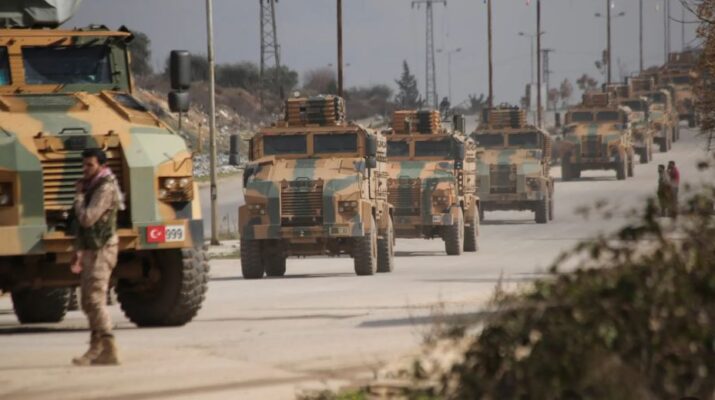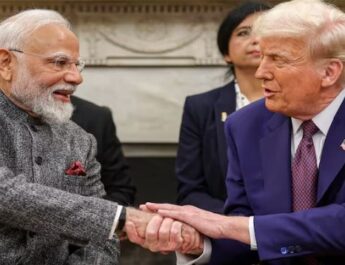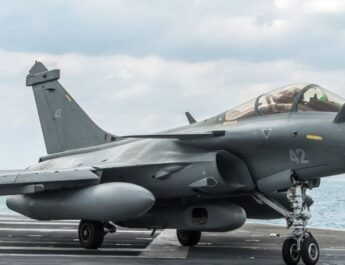In his recent no-nonsense interview with Sky News Arabia Syrian President Bashar al-Assad was pretty straightforward and blunt. He rejected any possibility of direct talks between him and Turkish President Recep Tayyip Erdogan unless the withdrawal of Turkish forces from Syrian territory. President Assad said, “Erdogan’s objective in meeting me is to legitimize the Turkish occupation in Syria, and Why should I and Erdogan meet? To have soft drinks?”. He further added that “Terrorism in Syria is made in Turkey”. Previously on many occasions, Turkish President Erdogan has stated that he is open to talks with his Syrian counterpart but without any precondition of a withdrawal of Turkish troops from Syria. This bitterness in the bilateral relations between these two neighbors has been since the start of the Syrian civil war in March 2011. Turkey has been the biggest military and political ally of the Syrian opposition. Which still controls the last rebel-held bastion in the Idlib province, in northwest Syria on the Turkish border. Turkey has also been a main base for Syrian opposition groups since 2011.
While Turkey was not the only external power to intervene in Syria it was definitely the first and the most prominent one. Moreover, it also provided access to others. Turkish President Erdogan’s intervention began in May 2011 just two months after protests erupted in Syria against the rule of Assad. He convened a meeting in Istanbul of different Syrian opposition factions to discuss how to execute regime change. In July 2011, Turkey started recruiting Syrian army deserters for the Free Syrian Army (FSA) with the aim of using force to topple Assad who Ankara presumed would fall within weeks. The regime of President Assad believes that Syria would have escaped almost a decade of war if Turkey had not intervened militarily and politically when the Arab Spring anti-government protests erupted. Without Turkey’s early involvement, Damascus’s crackdown would have ended the protests and the government would have initiated the promised reforms. If we look from Turkey’s point of view a hostile Syrian state is a national security threat, and if we take Syria’s view, they believe that Turkey is their biggest enemy as Turks are responsible for the destruction of their country.
The foreign and defense ministers of both nations have met recently, but no substantial progress seems to have been made on the path toward reconciliation. Even though the Turkish government has long suspended its calls for regime change in Syria. Ankara-Damascus relations are still dominated by proxy warfare and deep mistrust. But the recent statement from the Syrian President comes as a little surprise. As it is believed that for quite some time now the Syrian government has been on a reconciliation drive with its neighbours and regional players. It seems that Assad feels emboldened by recent advancements with Arab states, namely renormalization with Saudi Arabia and Syria’s return to the Arab League. In addition to this Syrian regime as of now doesn’t see any utility in having top-level talks with Turks. Also, Syrians and Turks have conflicting interests in the Syrian political landscape.
Erdogan’s normalization rhetoric aims to satisfy the populist hope back home that Turkey will be able to repatriate the millions of Syrian refugees residing in the country, and thus portrays Erdogan as a leader who may deliver real change. Also, Turks expect that it may receive collaboration from Damascus to hasten the withdrawal of American troops in north-eastern Syria and to curb Kurdish autonomy. Both these objectives of the Turks don’t interest the Syrian regime at all. The Syrian government does not share Turkey’s view of the Kurdish administration, and Damascus is comparatively less hostile to a Kurdish status in Syria than Turkey. This difference in stance stems from Turkey’s domestic Kurdish issues, which shape the country’s regional approaches. Damascus also worries about the local power dynamics if the Kurdish-led Autonomous Administration of North and East Syria (AANES) ceases to exist. And on the issue of the return of the refugees. The Syrian government doesn’t consider it as their own problem but of the Turks, or even sees it as a bargaining chip in any future negotiations with Turkey. Because Damascus can always halt the return of refugees or make life so hard, they don’t wish to return, leaving Ankara with the problem.
The Syrian leadership believed that time is on their side the longer they waited, the stronger their leverage against Turkey would grow as they have broken free from diplomatic isolation. Moreover, the waiting game is the most important weapon used by the regime throughout the conflict. Damascus successfully kept its patience and waited out the breaking up of domestic, regional, and global hostility against the regime, witnessing the disintegration of domestic and regional anti-Assad coalitions. After weighing all these dynamics President Assad has therefore put forward preconditions for the reconciliation to move forward.
These two totally different approaches of Turks and Syrians have created a wide gulf between the two sides. Turkey cannot meet Syria’s demands in the short term, and Ankara therefore insists that reconciliation talks start without any precondition. And Damascus doesn’t see any reason to rush to improve relations with Turks. So, in the near future, it looks like these two neighbours will be at odds with each other. It is right to say that Ankara-Damascus relations will remain strained and will continue like this for a while.
(The author is a columnist for Middle-East and Af-Pak region and Editor of the geo-political news agency ViewsAround can be reached at manishraiva@gmail.com)




